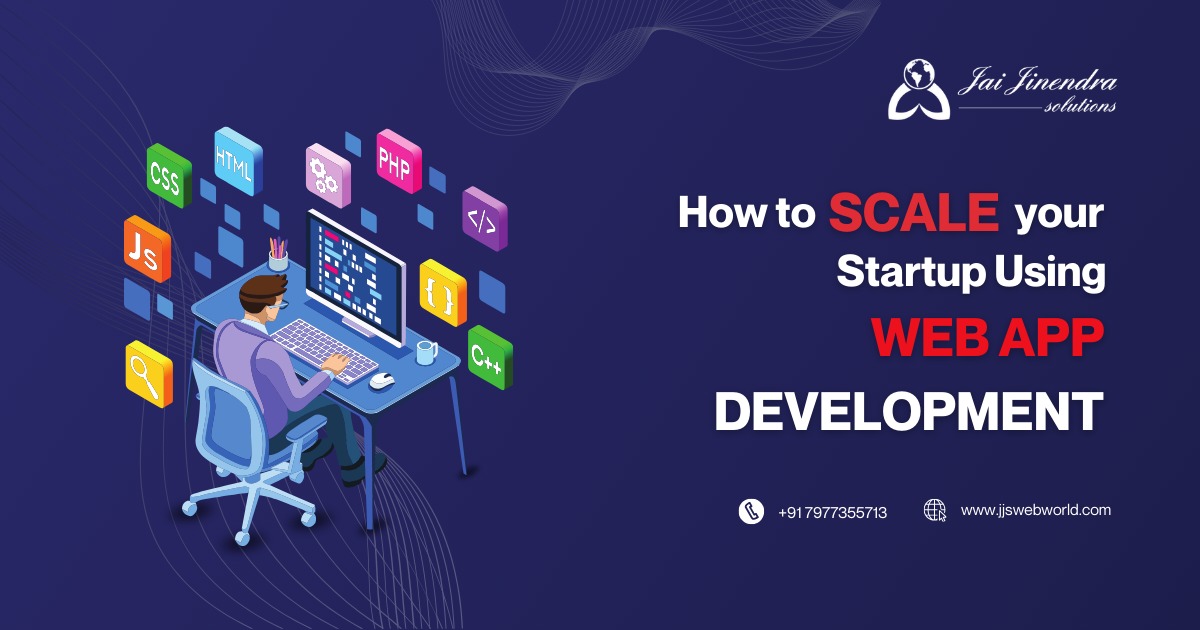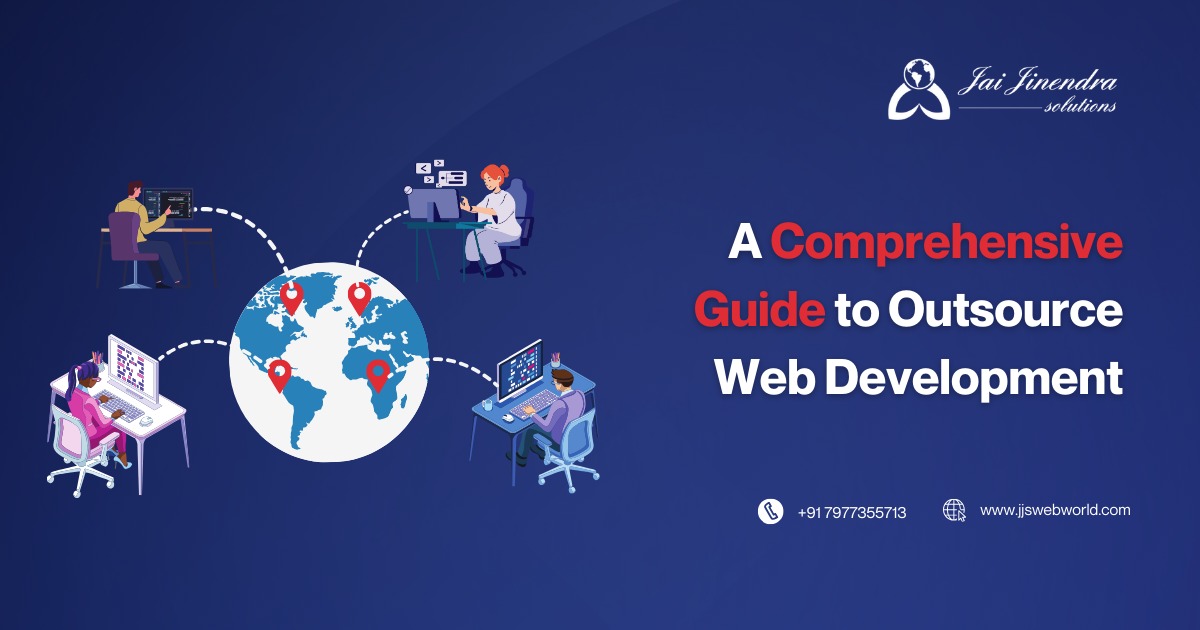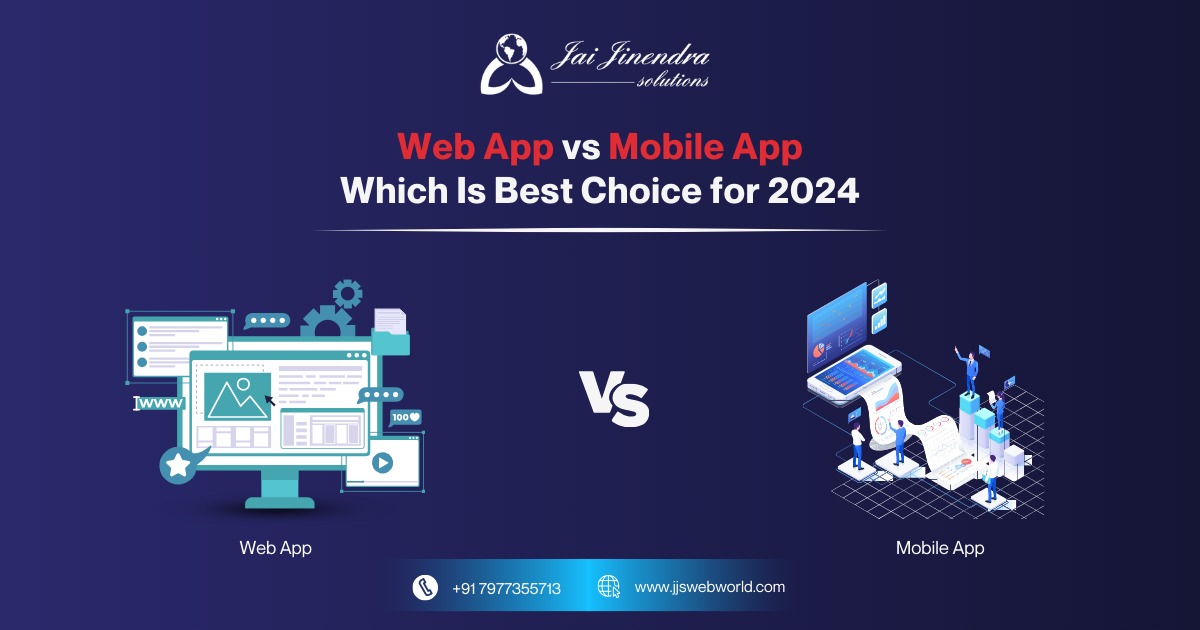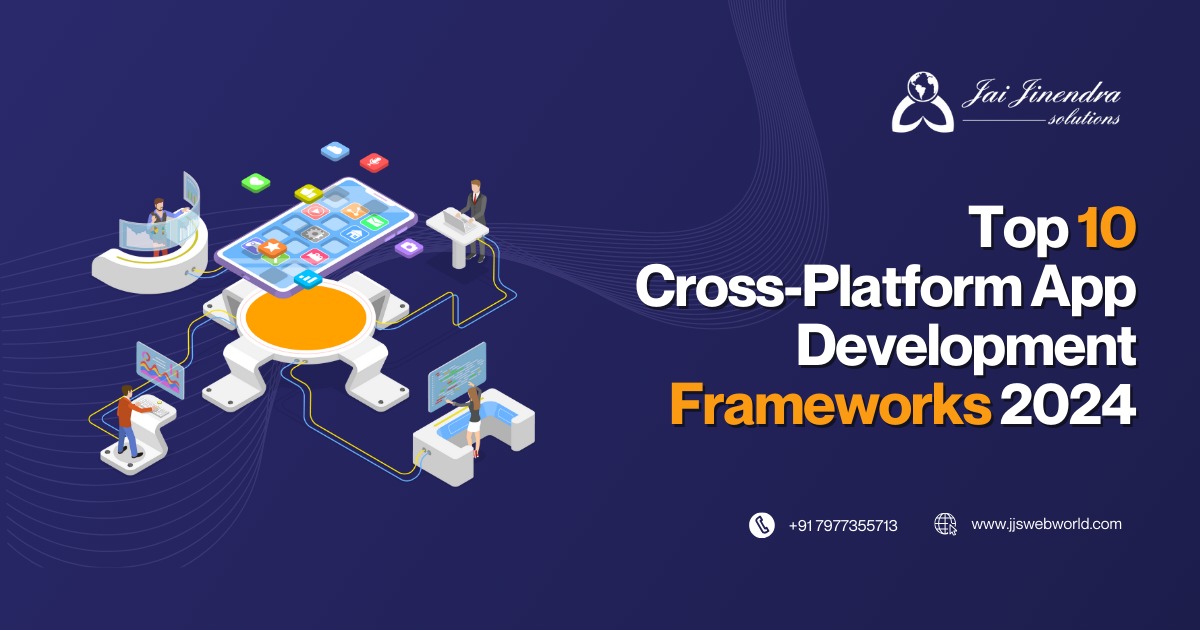- info@jjswebworld.com
- +91 7977355713
- 302, Arihant Residency Road No.2 Pushpa Park Dafftary Road , East Mumbai 400097, India
Top 10 Cross-Platform App Development Frameworks 2024
Latest Posts
- 12 Mar 2024
- admin
The mobile app landscape is growing rapidly, with businesses clamouring to reach users on various platforms. However, developing native apps for each operating system (OS) can be long-drawn-out and resource-intensive. This is where cross-platform app development steps in, which offers a solution to build apps that function ideally & seamlessly across multiple platforms with a single codebase.
This blog post is brief about the top 10 cross-platform app development frameworks in 2024, authorising mobile app development company and aspiring mobile app developers to make enlightened decisions for their next project. Whether you're a practiced React Native app development expert or just a beginner in your mobile app development journey, this blog provides valuable knowledge of the benefits and uses of each framework.
The below 10 tools acknowledge you to build amazing apps for different platforms, all without demanding to write separate code for each one. Whether you're an experienced developer or just starting out, this guide will deck out with the knowledge to choose the perfect framework for your next project.
- Flutter: Flutter is an open-source framework from Google that's revolutionising the world of mobile app development. It empowers you to craft stunning, high-performance applications for mobile, web, desktop, and even embedded devices—all from a single codebase. This translates to significant benefits for app development company looking to create cross-platform apps efficiently.
Benefits of using Flutter for mobile app development company:
- Reduced Development Costs: Build cross-platform apps with a single codebase, leading to significant cost savings.
- Faster Time-to-Market: Get apps to users quicker with streamlined development cycles.
2. Titanium: Titanium Studio, the accompanying IDE, provides a comprehensive development environment with tools, code completion, and debugging features to streamline the development process.
Benefits for App Development Company:
- Code completion and editing tools: Streamline development by suggesting code snippets and highlighting syntax errors.
- Debugging tools: Efficiently identify and fix bugs within your app for a smoother development process.
3. Iconic: Ionic is a complete open-source mobile app development framework created by the Angular team at Google. It empowers mobile app developers to craft high-performance, visually stunning, and modern mobile apps using familiar web technologies like HTML, CSS, and JavaScript. This translates to faster development cycles, a broader talent pool, and a single codebase for deploying across iOS, Android, and even web platforms.
Benefits of using Iconic for mobile app development company:
- Ionic enables developers to build cross-platform apps rapidly by utilising a single codebase for iOS, Android, and web platforms.
- With its extensive library of pre-designed UI components and built-in tools like Live Reload, Ionic streamlines development cycles, allowing for faster iteration and deployment.
4. Node.js: While Node.js itself isn't a complete framework for cross-platform app development, it serves as a powerful foundation upon which many popular frameworks are built. This makes it a crucial technology for Mobile app development company looking to create efficient and scalable cross-platform apps. Here's a breakdown of how Node.js empowers cross-platform development.
Benefits of using Node.js:
- Highly Responsive Apps: Node.js efficiently handles multiple user interactions simultaneously, resulting in smooth and responsive user experiences.
- Scalability for Growth: As your app's user base grows, Node.js can seamlessly scale to accommodate the increased traffic without compromising performance.
5. Rive: Rive is a powerful animation editor with tools for building animations that can be seamlessly integrated into cross-platform apps using various frameworks like React Native or Flutter. The benefits of Rive are as follows:
- Reduced Development Time: Pre-built animation components and integrations with existing frameworks can streamline the development process for animation-heavy apps.
- Focus on Animation Expertise: Rive might be a better fit for projects where high-quality animations play a central role, requiring developers with animation design skills.
- React Native: React Native is a game-changer for mobile app developers, allowing them to leverage their existing JavaScript knowledge to create high-quality native apps for iOS and Android, all from a single codebase. This translates to significant time and cost savings, along with a faster path to market for your mobile app.
Benefits of Using React Native:
- Reduced Development Costs: Reuse code across platforms, leading to faster development and lower resource requirements.
- Faster Time to Market: Get your app to users quicker with streamlined development cycles and hot reload functionality.
- NativeScript: NativeScript lets you build truly native mobile apps for iOS, Android, and more using JavaScript, TypeScript, or Angular. It offers:
- Native Performance: Achieve smooth and responsive apps with direct access to native APIs.
- Single Codebase: Develop once, deploy across platforms, reducing development time and costs.
- Kotlin: Kotlin is a game-changer for Android development. This modern language offers a smoother development experience for mobile app developers. It also leads to more robust and reliable apps for users. Here's why Kotlin is rapidly becoming the go-to choice for Android:
- Reduced Development Costs: Faster development and fewer bugs translate to lower overall costs.
- Attract Top Talent: Kotlin's popularity makes it an attractive language for developers.
- Frameworks7: Frameworks7 offers a lightweight and modular approach to building cross-platform mobile apps with a focus on web technologies like HTML, CSS, and JavaScript. The benefits of Framework 7 are:
- Modular Design: Frameworks 7 allows developers to pick and choose the components they need, providing a high degree of flexibility compared to more rigid frameworks. This allows for tailored app experiences that cater to specific project requirements.
- Deep Customisation: The framework doesn't enforce a specific design language, giving developers full control over the look and feel of the app. This caters to projects with unique design needs.
10. MAUI (Multi-platform App UI): Lastly, the Future of Cross-Platform Development from Microsoft is still under development. MAUI is Microsoft's next-generation approach to cross-platform app development, aiming to unify Xamarin. Forms, WPF (Windows Presentation Foundation), and UWP (Universal Windows Platform) into a single framework.
Beyond the frameworks mentioned, stay curious and explore the ever-changing landscape! New frameworks and advancements are constantly emerging, so keeping yourself informed will ensure you have the most up-to-date knowledge to make informed decisions for your future projects.
With careful consideration of your project's needs and your development team's skills, you can leverage the power of cross-platform development frameworks to build successful and efficient mobile apps that reach a wider audience.






